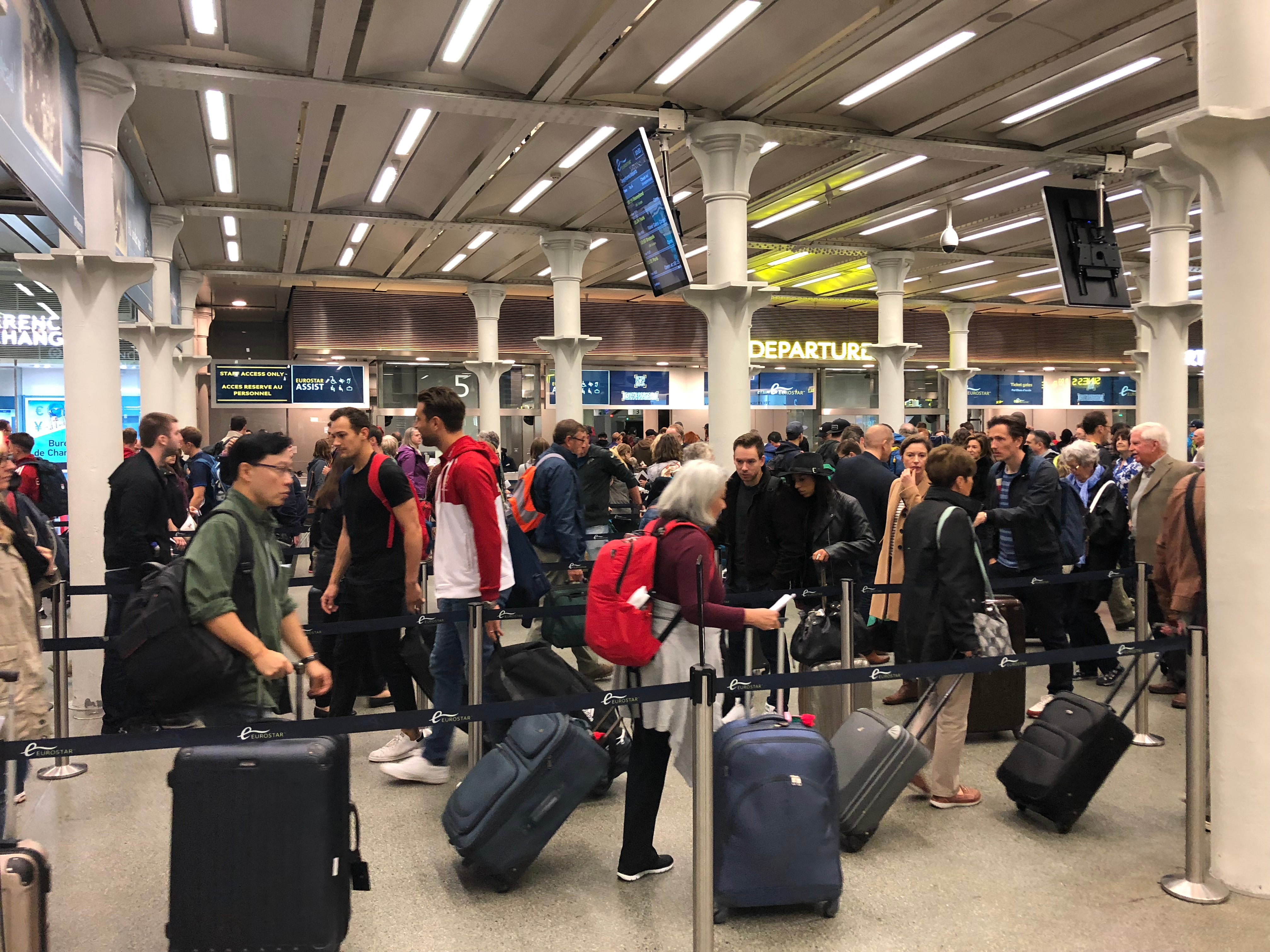Rail, ferry and Eurotunnel passengers to Europe face border chaos in 2022, warn transport chiefs
‘There is no such thing as an e-gate for a car,’ says Tim Reardon, head of EU Exit for Dover Harbour Board

Rail, ferry and Eurotunnel passengers travelling between the UK and France could face chaos next year when the EU’s long-planned Entry/Exit System (EES) is implemented.
Transport chiefs told peers on the House of Lords Justice and Home Affairs Committee that the system, related to the Etias e-visa scheme, was designed for airlines rather than for terrestrial operators.
The EES was developed while the UK was a member of the European Union, ahead of the 2016 EU referendum. Following the decision to leave, the UK has become subject to the requirements for facial and fingerprint biometrics to be collected from every non-EU visitor to Europe’s Schengen area.
The schedule is for checks to become mandatory from May 2022, though it is thought that this is likely to slip until later in the year.
Tim Reardon, head of EU Exit for the Dover Harbour Board, said: “The challenge in our context is that in all those environments where biometric controls happen at the moment – whether it’s an e-gate or a fingerprint reader or previously an iris scanner that the UK authorities had – individuals pass through the frontier one at a time and on foot.
“In our context, virtually everybody crosses the border in a vehicle and in a group.
“There is no such thing as an e-gate for a car, and there is no such thing as an e-gate process for people travelling as a group. They’re all one-at-a-time processes.
“So there is a mismatch between the concept on which biometric controls as they exist now are operated and the way traffic moves in our context. There is no way of doing a biometric control without getting everyone out of the vehicle.
“That’s the one thing on our site which cannot happen because you’re in the middle of live traffic. It would be equivalent to asking people to get out of their car at a motorway toll booth. It’s fundamentally unsafe and it can’t happen.
“So the challenge is to find a way of squaring that circle and matching those two incompatible concepts.”
John Keefe, director of public affairs for Getlink – which operates Eurotunnel shuttles between Folkestone and Calais – said: “Any disruption to the French inbound control has an immediate knock-on effect on traffic in minutes.
“We carry 11 million passengers each year, the majority of those at holiday time.
“On a peak summer’s day, we would be carrying something in the region of 600 cars per hour, approximately 2,400-2,500 passengers.
“We would be looking at 1,600 to 1,700 passengers per hour to be processed for the first time.
“That’s an impossible task in the space that we have available.
“The risk of congestion is to our motorways, to the M20, the A20 and A2. Once all of those areas are congested, Kent becomes impassable.”
Mr Keefe said that professional truck drivers would follow instructions.
“Managing passenger vehicles, individual consumers, when they have an imperative, ‘We must get there’, is a completely different kettle of fish.
“They disobey rules quite happily, and will leave the motorway and will look for alternative routes which they’ll then congest, and we’ll very quickly have a very widespread issue in Kent.”
Eurostar, which runs passenger-carrying trains linking London St Pancras with Paris, Brussels and Amsterdam, faces space constraints at its UK hub.
Gareth Williams, the train operator’s strategy director, said: “This is coming at us fast, in a very underdeveloped way.
“We don’t currently see a practical solution. If we take the peak of August, up to 80 per cent of people will have to go through the system.
“In a peak hour in August we have 1,800 passengers. About 1,500 of those would be required to go through the the EES, of whom 830 would be first-time travellers.
“There’s at least one day like that every month.
“We do have a very extreme space challenge. At a minimum we would require over 30 kiosks, and an area about the size of our entire check in area at St Pancras.”
The rules will not apply to EU citizens.
Lord Blunkett, the former Labour home secretary, said: “I’m going to ask my wife to explore her heritage with the Republic of Ireland … to get joint citizenship.”
The hope is that many travellers will pre-register for the scheme before going to the port or railway station. But Mr Williams warned that getting the message out could be tricky.
“The information we give, and have to read out to each passenger around Covid, it’s the length of a Tolstoy novel,” he said.
“You just get that information overload and in the end people just switch off.”
The Eurostar director also criticised the current UK passenger locator form which, he says, “runs on a list of redundant questions for six pages and is only available in English.”
Join our commenting forum
Join thought-provoking conversations, follow other Independent readers and see their replies
Comments
Bookmark popover
Removed from bookmarks